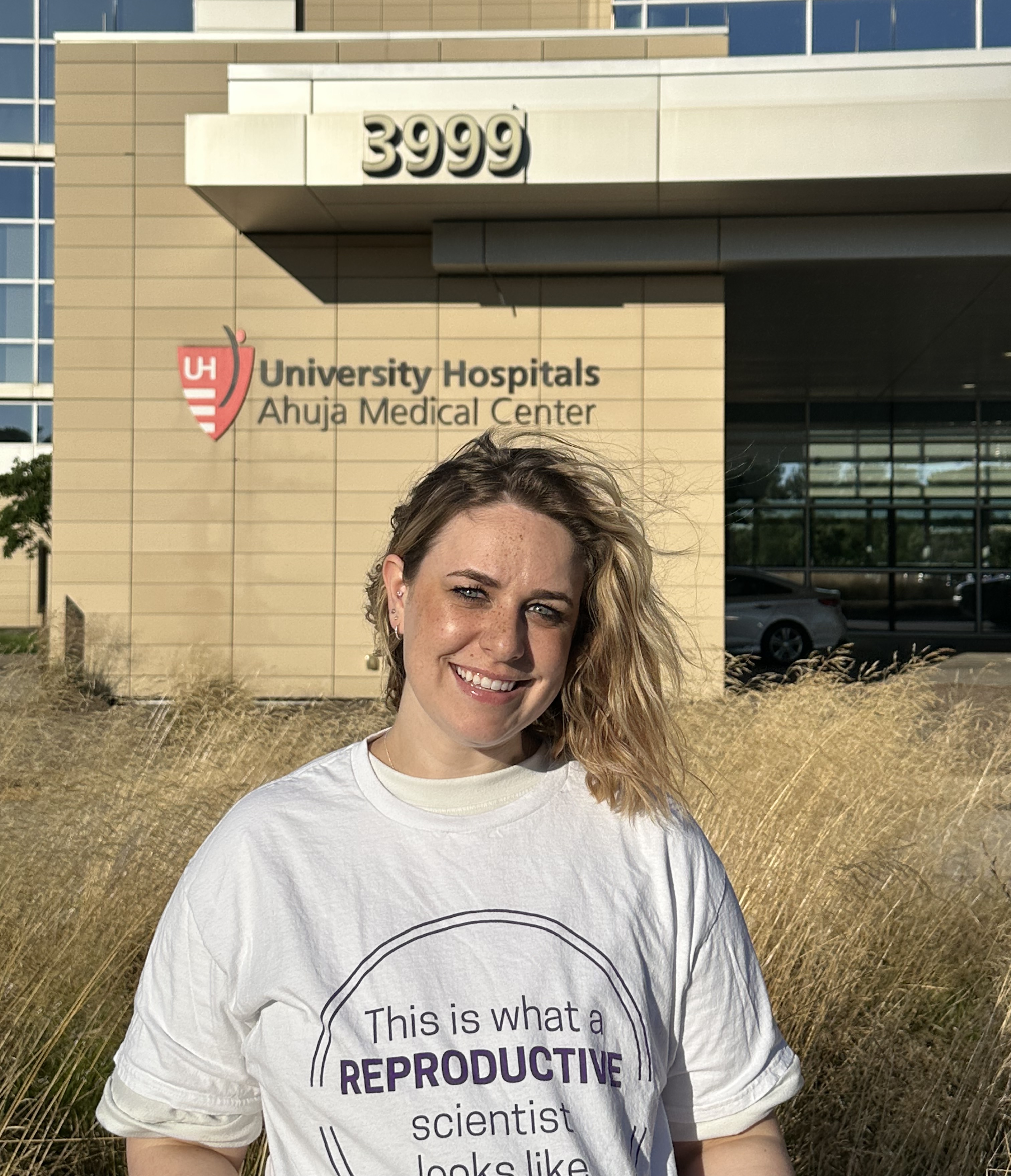Alumni Spotlight on Helen Montague
I truly would not be in my current position without the connections I made during my time in the MS-RSM program.
Helen Montague
MS-RSM Class of 2025
Helen Montague is a graduate of the MS-RSM program, class of 2025. She on the non-thesis track and conducted research with Dr. Pamela Monahan and Dr. Linsey Block. She is currently an Embryologist at University Hospitals Fertility Center.

Mentor: Pamela Monahan, PhD and Lindsey Block, PhD
Project Title: "Unwrapping the Effects of Polyethylene Nanoplastic Exposure on Human BeWo Cytotrophoblasts"
What is your connection to the CRS community and what is your current position?
I am an MS-RSM alumni from the non-thesis track. I studied under Drs. Pamela Monahan and Lindsey Block during my time in the MS-RSM program. I am currently an Embryologist at University Hospitals Fertility Center in Cleveland, Ohio, under the mentorship of Dr. Sung Tae Kim.
Could you describe your current research/studies?
I don’t currently have a project assigned to me, but our lab is in the pilot phase of a few studies.
What aspect(s) of CRS did you find most valuable?
The connections! The vast network of professors, lab professionals, and physicians is such an asset to the program. I truly would not be in my current position without the connections I made during my time in the MS-RSM program. The mentorship was another thing I found very valuable. Having professors who want you to succeed and are supportive of you in and out of the classroom is so important, and the MS-RSM program has some of the most supportive mentors I could have ever asked for.
What has been the most valuable aspect to your training as a reproductive scientist in CRS?
Truly understanding the background of reproductive science has really given me a jumpstart in my career. Being in the lab and doing the procedures is great and I’ve learned a lot that way. However, being able to understand why a male patient who has a history of testosterone use is important to their fertility or why a physician would use certain medications in an IVF cycle is just as important as being able to do the bench work. Without understanding the basics, you’re just going through the motions.
What would you recommend to junior scientists in order for them to succeed in their scientific careers?
NETWORK!!!! Seriously, it’s so vital to get your name out there and talk about the important work you are doing! You would be shocked at who knows who in the reproductive world, so striking up a conversation with a professor or a colleague at a conference could open a door you didn’t even know was there. Furthermore, there is nowhere else you have such a wealth of knowledge regarding reproductive science in one place. I encourage the current cohort, and future cohorts, to really take advantage of the breadth of knowledge found at Northwestern University AND Northwestern Medical.
Do you have any notable stories from your time in CRS?
I think one of the most notable things I was able to do was go into the OR with Northwestern’s Reproductive Urologist, Dr. Robert Brannigan. Watching him, his fellow, and his resident perform TESEs has benefited me in my current position, and there is truly never a dull moment in the OR. It was also incredible to be able to go into the IVF lab and perform mock embryo biopsies and ICSI.